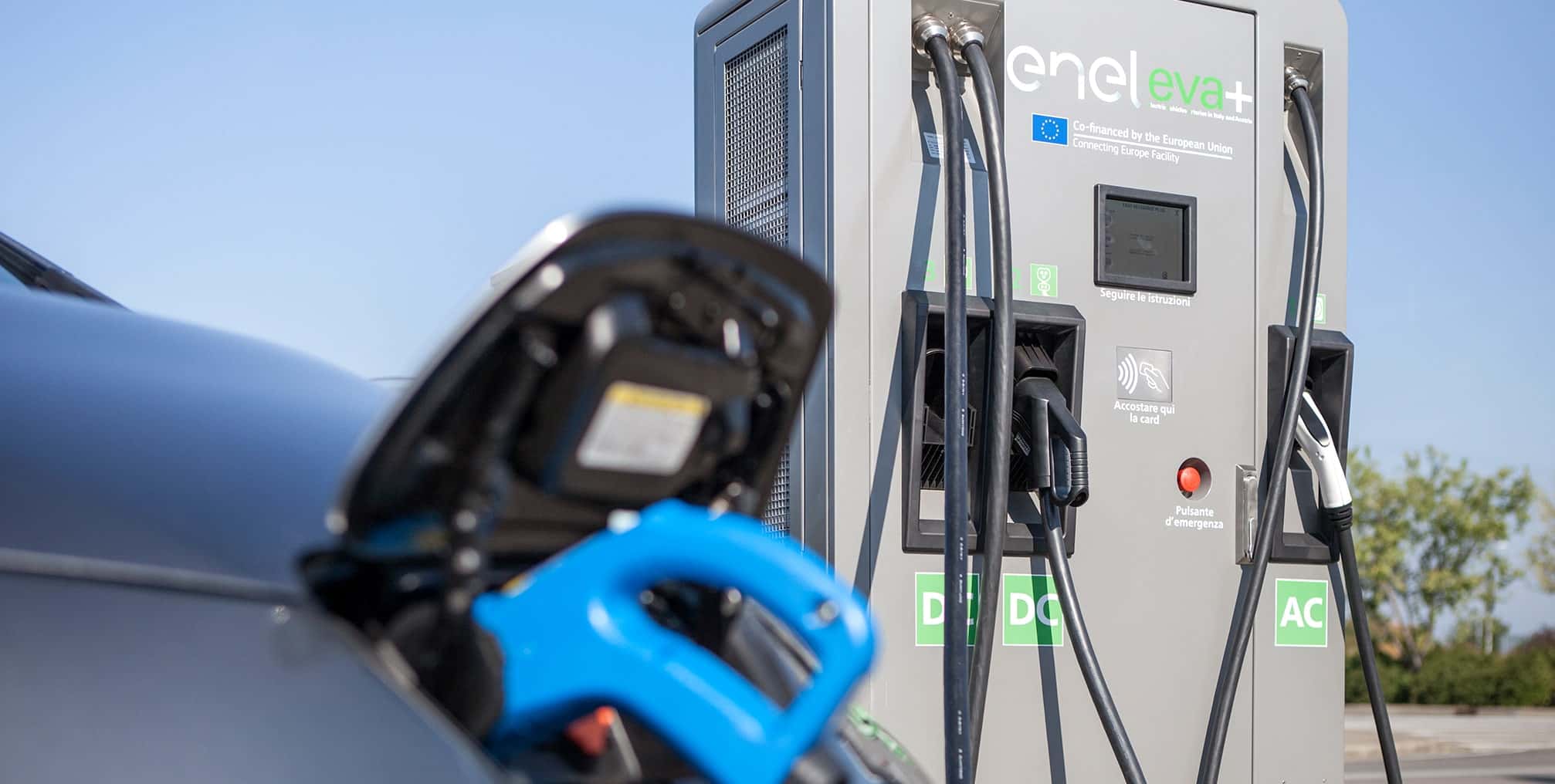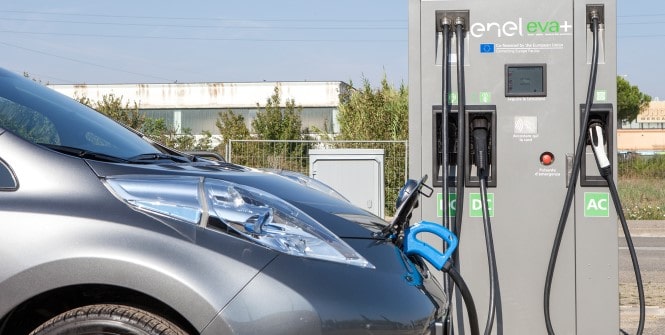The National Plan for the installation of EV charging
The National Plan for the installation of EV charging infrastructures, which was unveiled in November 2017, aims at promoting the development of electric mobility throughout Italy...

The National Plan for the installation of EV charging infrastructures, which was unveiled in November 2017, aims at promoting the development of electric mobility throughout Italy by implementing a widespread network of charging stations across the country, covering both urban and extra-urban areas, to boost the increase of electric and plug-in hybrid vehicles in circulation.
Enel’s National Plan for the installation of EV charging infrastructures will involve an investment of between 100 and 300 million euros with the aim to set up around 7,000 charging stations in Italy by 2020, and reach a total of 14,000 stations by 2022. The Plan’s widespread network of EV chargers will include Quick (22 kW) charging stations in urban areas as well as Fast (50 kW) and Ultra Fast (up to 350 kW) charging stations in extra-urban areas. Approximately 80% of the charging points will be installed in urban areas, of which 21% in major metropolitan areas and 57% in other cities, while the remaining 20% will be located in other areas around the country to foster medium and long-distance travel in extra-urban areas and on motorways. In 2018 alone, Enel is set to install more than 2,500 charging stations throughout the country.
The charging stations along extra-urban roadways include those involved in the EVA+ (Electric Vehicles Arteries) project, which is coordinated by Enel with the participation of Verbund, Renault, Nissan, BMW and Volkswagen Group Italia (represented by Volkswagen and Audi). The project, co-financed by the European Commission, provides for the installation of 180 charging points along Italy’s extra-urban roads over a three-year period.
